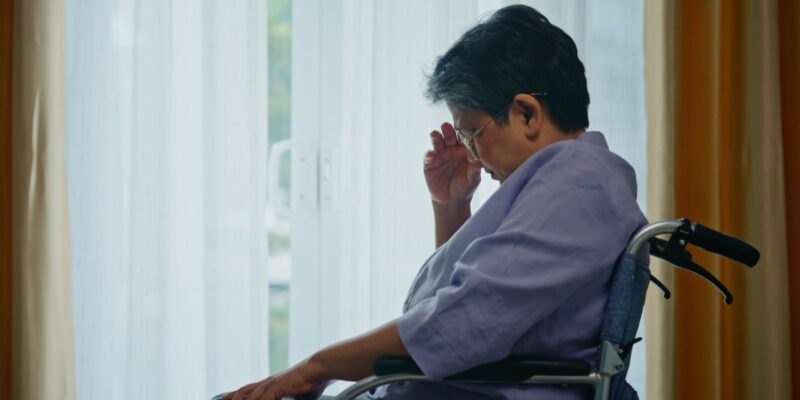
Disabled people are five times more likely to experience domestic violence than non-disabled people, and make up a third of its victims, according to a new report published today by the federal Government Accountability Office. People with cognitive disabilities, such as those who are autistic, are even more likely to be abused. Disabled women are also more likely to be the target of such violence than disabled men.
The rates of abuse, drawn from Justice Department data from 2017 to 2022 underscore the necessity for domestic violence centers and their services to be accessible to disabled people—which is required by both the Americans with Disabilities Act and Section 504 of the Rehabilitation Act, key items of federal civil rights legislation, but is not always the case. ADA enforcement, for instance, often requires disabled people to make complaints after the fact. Someone actively experiencing domestic violence may not have the capacity to do so, let alone wait for a center to make itself accessible—highlighting the importance of government enforcement of accessibility laws for disabled people’s safety.
“The GAO report highlights a critical gap in our domestic violence services for individuals with disabilities.”
“We must guarantee that our systems are not only adequately funded but also effectively implemented, so survivors, regardless of their abilities, receive the support they need,” said Rep. Bobby Scott (D-Vir.), who released the report with Rep. Suzanne Bonamici (D-Ore.), in a statement to Mother Jones.
The GAO report investigated whether domestic violence programs that receive funding from the Department of Health and Human Services are accessible to disabled people; most of the domestic violence centers interviewed for the report across Maryland, Mississippi and Washington said that they served relatively few disabled survivors, and officials at nine of 12 centers weren’t certain how to identify whether a survivor had a disability. Some disability groups, according to the report, say that local centers do not work with them to better reach disabled survivors.
Disabled people may also be scared to report domestic violence if they are abused by people they rely on for caregiving, as the report notes:
One domestic violence group told us that some people with disabilities who require caregiving to live in their homes may not seek domestic violence services because they are reluctant to report the abuse they have suffered. Officials from that group said people with disabilities who require caregiving may be worried that if they seek domestic violence services from a local center, law enforcement or other authorities will be notified of the abuse and move them from their preferred living situations into institutions.
HHS is responsible for ensuring compliance with federal law at the institutions it makes grants to, but here it also falls short, investigators found. The GAO report notes that there were no accessibility-related findings from on-site visits by HHS from 2019 to 2022 across 17 states, which HHS says it’s addressing by updating its monitoring requirements “to include more specific accessibility compliance questions.”
Investigators also reached out to resource centers like the National Network to End Domestic Violence: 11 of the 16 that responded said they shared best practices for how to work with survivors with disabilities, but only two have developed technical assistance on making shelters accessible to disabled people. GAO’s site visits, the report says, “raise questions about whether the assistance provided by national resource centers and state coalitions” addresses local needs, made still more difficult by a lack of data on accessibility needs and efforts.
“The GAO report highlights a critical gap in our domestic violence services for individuals with disabilities,” Scott said. “We must invest in the collection of crucial data to understand the needs of survivors with disabilities, but also must ensure this information leads to meaningful improvements.”
The report, available in full on GAO’s website, recommends that HHS investigate how it can better support local centers in accessibility and support for disabled survivors, and implement those changes.















